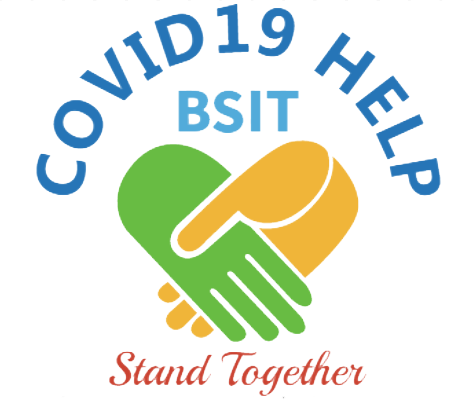Welcome TO BSIT-COVID19 HELP PORTAL COVID-19 Vaccine
Know About Vaccination
WHAT TO EXPECT BEFORE VACCINATION?
The way we do in a clinical trial phase: first, the recipient will be asked to give a written consent. Additionally, the recipient will be followed up actively to see if the vaccine has led to any side effects. In short, it will be an extension of the Phase 3 trial. But in this, the person would know that he or she has received the vaccine, and not the placebo. It is completely voluntary.
To ensure that a vaccine is safe, we need to try it on a large number of people. The vaccine developers have not reduced the sample size at any stage of clinical trials rather it was bigger than what we usually test a vaccine on.
When a vaccine is tested, most of the adverse events or unwanted effects, if any, occur in the first four to six weeks of its administration. So, in order to ensure that it is safe, we keep a close watch, for the first two-three months, on the people it has been given to. This data help us decide if a vaccine is safe. All concerned in the line of vaccine development, testing and evaluation have followed these procedures to the T. Both Indian vaccines are considered safe on this yardstick.
As for the efficacy of the vaccine, we need time to tell how effective a vaccine is. All the global agencies have set the benchmark that only those vaccine candidates which show an efficacy of at least 50-60% will be considered. Most of the vaccines have shown an efficacy of 70-90% within the short period of two to three months of observation. Besides when a vaccine is given an emergency use authorizations/permission for restricted use, as in the case of the COVID-19 vaccine, the trial follow-up continues for one-two years to assess the total duration of protection the vaccine will provide.
There is no head-to-head comparison done between the two vaccines being used in India so one cannot choose one over the other. Both would work fine in preventing the infection as well as prevent a person from going into severe state of the disease. As a long-term effect, it would be preventing death for elderly people or those who have comorbidities.
Currently, there is no such instruction. One can take one's regular medication uninterruptedly. Just inform the vaccinator about the medicines you consume.
Chronic diseases and morbidities like the cardiac, neurological, pulmonary, metabolic, renal and malignancies etc. are not contraindicated. In fact, the benefit of COVID-19 vaccines to reduce the risk of severe COVID-19 disease and death is for those who have these comorbidities.
Yes, persons with one or more of these comorbid conditions are considered among the high risk category. They need to get COVID-19 vaccination. Overall, the vaccine is safe and efficacious in adults with comorbidity. The maximum benefit of getting the COVID-19 vaccine is for those who have such co-morbidities. However, if you are concerned for any specific reason, please consult your doctor.
